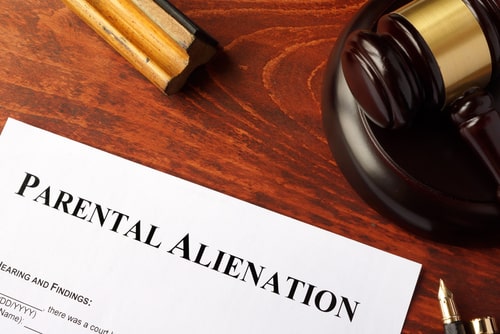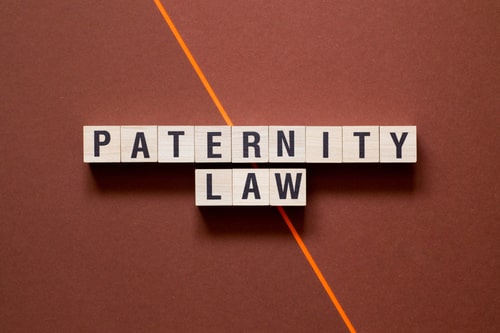Recent Blog Posts
Is Your Spouse Hiding Assets During Your Wisconsin Divorce?
 As if divorce were not emotionally stressful enough, if you suspect your spouse is hiding assets, the stress is significantly increased. Along with eight other states, Wisconsin is a community property state. Under community property law, all income, property, and debts acquired during the marriage are divided equally during a divorce.
As if divorce were not emotionally stressful enough, if you suspect your spouse is hiding assets, the stress is significantly increased. Along with eight other states, Wisconsin is a community property state. Under community property law, all income, property, and debts acquired during the marriage are divided equally during a divorce.
Equitable distribution states, on the other hand, divide marital property and debts fairly, but not necessarily equally. Wisconsin requires full disclosure of all assets, yet some spouses are determined to take more than their fair share. If you suspect your spouse is not disclosing all marital assets, an experienced divorce attorney can work to locate the assets and then aggressively fight for your half.
How Do Co-Parents Split Vacation Time With Their Child in Wisconsin?
 Some couples who get divorced plan for the divorce process, but not all couples plan for life after divorce. For parents, one of the hardest things to adjust to in post-divorce life is how to co-parent a child together. They need to decide certain issues like:
Some couples who get divorced plan for the divorce process, but not all couples plan for life after divorce. For parents, one of the hardest things to adjust to in post-divorce life is how to co-parent a child together. They need to decide certain issues like:
-
How they will make decisions about the child
-
How they will support the child
-
How to divide physical custody, or what Wisconsin law calls “placement”
-
How to schedule child placement during vacation
To help parents and their children better plan for life after divorce, parents who want to dissolve their marriage usually must submit a parenting plan to the court. Parenting plans are legally binding documents that have long-term consequences, so they should be drafted with the help of an experienced family lawyer.
Who Gets the House in a Wisconsin Divorce?
 One of the most complicated parts of the divorce process is dividing marital property between two spouses. Marital property is the term Wisconsin law uses to refer to assets that belong to both spouses, and it includes not only physical property but also things like savings accounts and retirement funds. In Wisconsin, marital assets are split equally between both spouses by default, but it still takes a skilled divorce attorney to make the process smoother.
One of the most complicated parts of the divorce process is dividing marital property between two spouses. Marital property is the term Wisconsin law uses to refer to assets that belong to both spouses, and it includes not only physical property but also things like savings accounts and retirement funds. In Wisconsin, marital assets are split equally between both spouses by default, but it still takes a skilled divorce attorney to make the process smoother.
A question commonly asked by people who are getting divorced is: Who gets the family home?
Who Gets the House?
If both spouses have been living as husband and wife in the house — also called the marital home — then it belongs to each of them equally. This is true even if only one spouse’s name is on the lease or deed. It is also the case even if one spouse bought the house before the marriage. Wisconsin law dictates that except for certain cases, both parties own the marital home and have a right to live there.
I Have Legal Custody. Can I Relocate with My Child?
 There are several reasons why a parent who has custody of a child might need to relocate. But the child’s other parent also has a legal right to see the child, which Wisconsin law takes seriously. There is a strict legal process that must be followed before moving with your child, and a qualified family lawyer should be consulted on any questions regarding relocation.
There are several reasons why a parent who has custody of a child might need to relocate. But the child’s other parent also has a legal right to see the child, which Wisconsin law takes seriously. There is a strict legal process that must be followed before moving with your child, and a qualified family lawyer should be consulted on any questions regarding relocation.
How simple the legal process is depends on many factors, one of them being how far you plan to move. This article will discuss those factors, as well as the procedure for an unmarried parent who wants to relocate with the child.
What is the Legal Process for Relocation?
If you want to relocate with your child, Wisconsin law requires you to file a request with a court if you plan to move more than 100 miles away from the other parent. When you file the petition, you will need to include:
How Do I Win a Child Custody Case in Wisconsin?
 The first thing to note about child custody cases in Wisconsin is that there is no such thing as a guarantee that you will win, as in get the result you want. Child custody is not a simple issue, and it is taken very seriously by the courts. There are many legal elements that factor into a court’s decision in a child custody case, so if your lawyer has "guaranteed" you will win the case, it might be time to change attorneys.
The first thing to note about child custody cases in Wisconsin is that there is no such thing as a guarantee that you will win, as in get the result you want. Child custody is not a simple issue, and it is taken very seriously by the courts. There are many legal elements that factor into a court’s decision in a child custody case, so if your lawyer has "guaranteed" you will win the case, it might be time to change attorneys.
That being said, an experienced lawyer can help you understand what the courts look for when deciding a child custody case and how you can improve your chances of getting the result you want.
What Do Courts Look At When Deciding a Child Custody Case?
In a child custody dispute, Wisconsin law dictates that the court look at "all facts" that concern the child’s best interests. These include, but are not limited to:
Making a Checklist for Your Divorce in Wisconsin
 For most people, the decision to divorce is not arrived at easily. There is often a series of emotional ups and downs and much contemplation, and even once the decision is made, you may still question whether there is any hope of repairing this relationship with the person you chose as your life partner.
For most people, the decision to divorce is not arrived at easily. There is often a series of emotional ups and downs and much contemplation, and even once the decision is made, you may still question whether there is any hope of repairing this relationship with the person you chose as your life partner.
But now that you are here and steadfast in your decision, it is important to take the steps to make sure you approach the process with clarity and preparedness. One essential tool is a pre-divorce checklist. This checklist can serve as a roadmap, helping you navigate divorce's complexities with a sense of control and confidence. A Wisconsin divorce lawyer representing you is crucial to navigating this process and protecting your parental rights and financial future.
Financial Assessment
Gather all financial documents, including bank statements, tax returns, investment portfolios, property deeds, vehicle titles, and liabilities. Wisconsin is a community property state, meaning your marital estate will be divided in half (unless extenuating circumstances exist).
The Impact of Parental Alienation in Wisconsin
 Parental alienation is a deeply troubling phenomenon that can have profound and lasting effects on children. This process occurs when one parent intentionally or unintentionally undermines the child's relationship with the other parent, leading to estrangement, hostility, or even rejection. The consequences of parental alienation can be devastating, affecting not only the child's current well-being but also their long-term emotional and psychological development. Studies have shown that these issues can impact the child into adulthood. If you suspect your ex is attempting to turn your child against you, contact a Wisconsin family lawyer for legal help.
Parental alienation is a deeply troubling phenomenon that can have profound and lasting effects on children. This process occurs when one parent intentionally or unintentionally undermines the child's relationship with the other parent, leading to estrangement, hostility, or even rejection. The consequences of parental alienation can be devastating, affecting not only the child's current well-being but also their long-term emotional and psychological development. Studies have shown that these issues can impact the child into adulthood. If you suspect your ex is attempting to turn your child against you, contact a Wisconsin family lawyer for legal help.
Emotional Distress
Parental alienation (PAL) can result in significant emotional distress for children. Being caught in the middle of a conflict between their parents can create feelings of confusion, guilt, and anxiety. Children may experience a sense of "loyalty binds." This is when a child is torn between their love for both parents and the pressure to take sides. This internal conflict can lead to heightened stress levels and may manifest in various ways, such as behavioral problems, withdrawal, or depression.
Establishing Paternity in Wisconsin
 In many cases, there is absolute certainty over who a child's mother and father are. If a child is born to a married couple, the husband is considered the child's legal father under Wisconsin law. However, suppose a child is born to an unmarried couple or after a couple has legally separated or divorced. In that case, some steps need to be taken to establish paternity of that child legally. A Wisconsin family law attorney can help you with this process.
In many cases, there is absolute certainty over who a child's mother and father are. If a child is born to a married couple, the husband is considered the child's legal father under Wisconsin law. However, suppose a child is born to an unmarried couple or after a couple has legally separated or divorced. In that case, some steps need to be taken to establish paternity of that child legally. A Wisconsin family law attorney can help you with this process.
Why Do I Need to Establish Paternity?
There are several reasons why establishing paternity of a child is essential. Multiple studies have shown that it is crucial for a child's emotional and social development if they have a bond with both parents. Establishing paternity provides children with a sense of identity and belonging by knowing both of his or her parents. It also gives the father the right to custody and parenting time.
Steps to Protect Your Financial Rights in a Divorce
 There is no doubt that divorce can be an emotional life event, even if you are the spouse who wants the divorce. However, the financial impact of divorce can also be significant. This is why it is crucial to take proactive steps needed to protect your assets and financial future. While the following is a brief overview of some of these steps, a Wisconsin divorce lawyer can provide more specific information and legal guidance that addresses your situation.
There is no doubt that divorce can be an emotional life event, even if you are the spouse who wants the divorce. However, the financial impact of divorce can also be significant. This is why it is crucial to take proactive steps needed to protect your assets and financial future. While the following is a brief overview of some of these steps, a Wisconsin divorce lawyer can provide more specific information and legal guidance that addresses your situation.
Gather Financial Documents
The first step in preparing for divorce is to gather all relevant financial documents. This includes bank statements, tax returns, investment accounts, retirement accounts, mortgage documents, credit card statements, and other financial records.
You also want to gather all legal documents for any property you own, including deeds, insurance policies, and vehicle titles.
Why Do Marriage Breakups Spike in January?
 Multiple studies and statistics have concluded that the month of January not only marks the new year but also sees a noticeable increase in the number of married couples who decide to call it quits. The spike is so significant that January is often dubbed “Divorce Month.” The following are some of the common factors these studies have found play a role in these numbers. Anyone considering a divorce should speak with a Wisconsin divorce lawyer who has experience aggressively protecting clients and fighting for their rights.
Multiple studies and statistics have concluded that the month of January not only marks the new year but also sees a noticeable increase in the number of married couples who decide to call it quits. The spike is so significant that January is often dubbed “Divorce Month.” The following are some of the common factors these studies have found play a role in these numbers. Anyone considering a divorce should speak with a Wisconsin divorce lawyer who has experience aggressively protecting clients and fighting for their rights.
New Year Reflections
As the New Year unfolds, people often find themselves reflecting on their lives, relationships, and personal goals. A new year often triggers a desire for personal growth and change. January represents a time of renewal and a fresh start, and this often leads to people evaluating their current life situations. These reflections can lead to a heightened awareness of just how unhappy they are in their marriage and a resolution to end a relationship that is no longer emotionally fulfilling.









